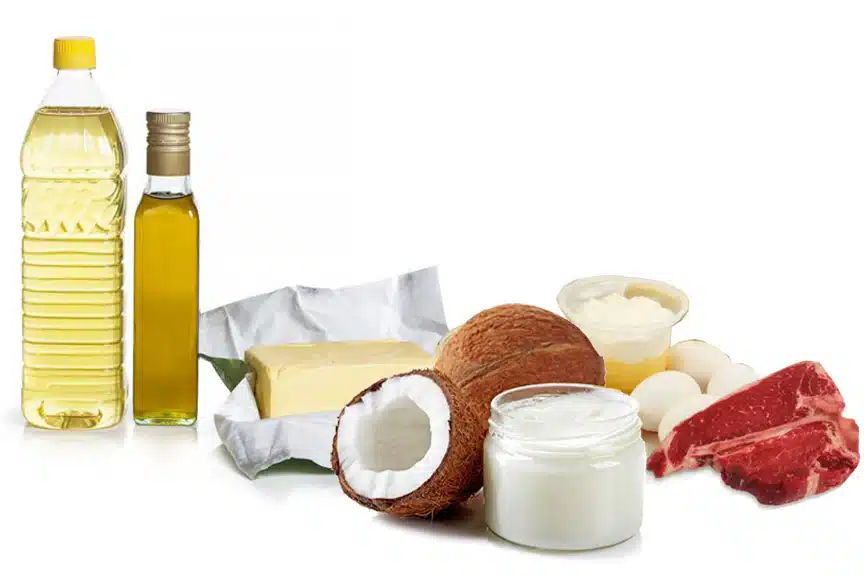The human gut is a complex ecosystem, home to trillions of microscopic organisms. This intricate network of bacteria, fungi, and viruses plays a crucial role in our overall health, influencing everything from digestion and nutrient absorption to immune function and even mental well-being.
While the gut microbiome is unique to everyone, maintaining a healthy balance of beneficial microbes is essential for optimal gut health. An imbalance, often referred to as dysbiosis, can lead to a variety of digestive issues, including inflammation, bloating, and discomfort. By understanding the importance of the gut microbiome, we can make informed choices about our diet and lifestyle to promote a thriving gut environment, setting the stage for better overall health and well-being.
How Cheese Affects Gut Health
Cheese, a beloved dairy product, has long been a subject of debate when it comes to gut health. While some perceive it as a potential culprit for digestive discomfort, others tout its potential benefits for the gut microbiome.
The impact of cheese on gut health is multifaceted, influenced by factors such as the type of cheese, its aging process, and the individual’s unique gut microbiome composition. Some cheeses, particularly aged varieties, contain beneficial bacteria that can contribute to a healthy gut ecosystem.
However, it’s important to note that cheese is also a source of lactose, a naturally occurring sugar that can be difficult to digest for those with lactose intolerance. Additionally, certain cheeses may contain additives or preservatives that could potentially disrupt gut health for some individuals.
Benefits of Consuming Cheese for Gut Health
Despite the potential challenges, there are several potential benefits associated with consuming cheese for gut health:
- Probiotic Properties: Certain types of cheese, such as aged cheddar, Gouda, and Swiss, contain beneficial bacteria known as probiotics. These live microorganisms can help replenish and diversify the gut microbiome, promoting a healthier gut environment.
- Nutrient-Dense: Cheese is a rich source of essential nutrients like calcium, protein, and vitamins A, B12, and D. These nutrients support overall health and may indirectly contribute to a healthy gut by supporting immune function and nutrient absorption.
- Fermentation: Many cheeses undergo a fermentation process, which can increase their digestibility and introduce beneficial compounds like short-chain fatty acids (SCFAs). SCFAs serve as fuel for the gut lining and may help reduce inflammation.
Risks and Considerations of Cheese for Gut Health
While cheese can offer potential benefits for gut health, it’s essential to be aware of potential risks and considerations:
- Lactose Intolerance: For individuals with lactose intolerance, consuming cheese can lead to digestive discomfort, such as bloating, gas, and diarrhea. However, aged cheeses tend to be lower in lactose and may be better tolerated.
- Saturated Fat Content: Many cheeses are high in saturated fat, which, when consumed in excess, can contribute to inflammation and potentially disrupt gut health.
- Additives and Preservatives: Some commercially produced cheeses may contain additives, preservatives, or artificial ingredients that could potentially disrupt the gut microbiome or cause digestive issues for sensitive individuals.
Best Cheeses for Promoting a Healthy Gut Microbiome
When it comes to selecting cheeses that may benefit gut health, consider the following options:
- Aged Cheddar: Aged cheddar cheese contains beneficial bacteria, such as Lactobacillus, which can act as probiotics and support a healthy gut microbiome.
- Gouda: This Dutch cheese undergoes a unique aging process that introduces beneficial bacteria, making it a potential probiotic source for gut health.
- Swiss Cheese: The distinctive holes in Swiss cheese are formed by the carbon dioxide produced by beneficial bacteria during the aging process, making it a good choice for gut health.
- Feta: Feta cheese is a fermented dairy product that contains live cultures, which can contribute to a diverse and healthy gut microbiome.
- Cottage Cheese: While not aged, cottage cheese is a good source of protein and calcium, both of which are essential for gut health.
Incorporating Cheese into a Gut-Healthy Diet
To reap the potential benefits of cheese for gut health, it’s essential to incorporate it into a balanced and varied diet. Here are some tips for doing so:
- Moderation: While cheese can offer benefits, it’s important to consume it in moderation, as excessive intake can lead to weight gain and other health issues.
- Pair with Fiber-Rich Foods: Combine cheese with fiber-rich foods like whole grains, fruits, and vegetables to support a healthy gut environment.
- Choose Aged and Fermented Varieties: Opt for aged and fermented cheeses, as they tend to be lower in lactose and higher in beneficial bacteria.
- Read Labels: When purchasing cheese, read labels carefully and choose varieties without excessive additives, preservatives, or artificial ingredients.
Other Factors to Consider for Gut Health Alongside Cheese Consumption
While cheese can play a role in supporting gut health, it’s essential to consider other factors that contribute to a healthy gut microbiome:
- Diverse Diet: Consuming a diverse range of plant-based foods, such as fruits, vegetables, whole grains, and legumes, can provide a variety of beneficial nutrients and fiber to support gut health.
- Hydration: Staying well-hydrated by drinking plenty of water can aid in digestion and promote regular bowel movements, which are essential for maintaining a healthy gut.
- Stress Management: Chronic stress can disrupt the gut-brain axis and contribute to gut dysbiosis. Incorporating stress-reducing activities, such as exercise, meditation, or yoga, can help support overall gut health.
- Sleep Quality: Adequate and quality sleep is crucial for maintaining a healthy gut microbiome, as disruptions in sleep patterns can impact gut function and potentially contribute to inflammation.
The Role of Probiotic Cheese in Gut Health
Probiotic cheese, which contains live beneficial bacteria, has gained increasing attention for its potential to support gut health. These cheeses undergo a unique fermentation process that introduces probiotic strains, such as Lactobacillus and Bifidobacterium.
Consuming probiotic cheese can help replenish and diversify the gut microbiome, potentially reducing inflammation, improving digestion, and boosting immune function. However, it’s important to note that the efficacy of probiotic cheese may vary depending on the specific strains used and the individual’s gut microbiome composition.
If you’re interested in exploring the world of probiotic cheese and its potential benefits for gut health, I encourage you to visit your local specialty cheese shop or seek out reputable online retailers. Many offer a wide selection of probiotic cheeses, along with knowledgeable staff who can guide you in making informed choices. Don’t hesitate to ask questions and sample different varieties to find the ones that suit your taste preferences and gut health goals.
Final Thoughts
While cheese can offer potential benefits for gut health, it’s essential to approach its consumption with moderation and mindfulness. By selecting aged and fermented varieties, reading labels carefully, and incorporating cheese into a balanced and diverse diet, you can potentially support a healthy gut microbiome.
Remember, gut health is a complex interplay of various factors, including diet, lifestyle, and individual factors. By considering cheese as one component of a holistic approach to gut health, you can find the right balance that works for your unique needs and preferences. Don’t hesitate to consult with healthcare professionals or registered dietitians for personalized guidance.
Sources
https://www.health.harvard.edu/staying-healthy/is-cheese-a-healthy-source-of-probiotics
https://health.clevelandclinic.org/is-cheese-good-for-you
https://www.ucihealth.org/blog/2019/04/cheese-board
https://www.healthline.com/nutrition/healthiest-cheese
https://www.eatingwell.com/article/8042421/best-dairy-foods-for-gut-health/








